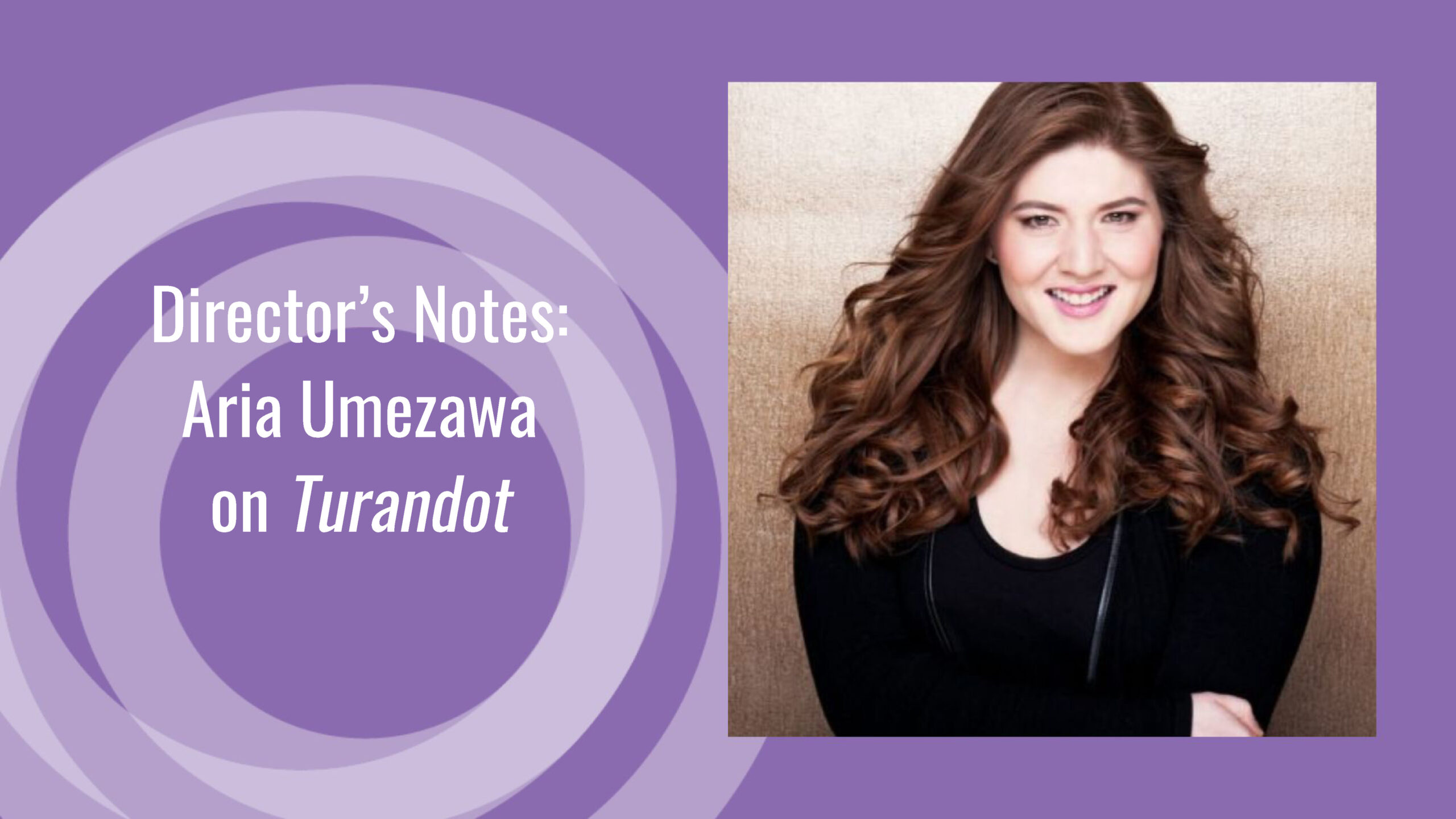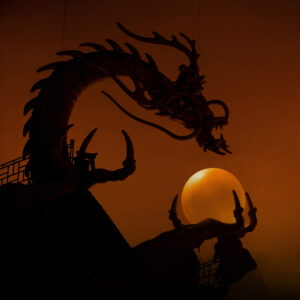Turandot: Director’s Notes

By Aria Umezawa
Before you see Turandot live at the Ellie Caulkins Opera House this May, hear more from the Director, Aria Umezawa.
Tickets are going quickly for Turandot’s performances from May 6 to 14. Get yours today>>
THE POWER OF WORDS
Philosophers, linguists, and anthropologists have long debated the relationship between language, understanding, and reality. For those who view language as shaping our understanding of reality, the act of naming has a semi-mystical significance, as in the saying, “the naming power of the word.” Plato’s writing has been particularly influential on this topic. In his dialogue Cratylus, Plato explores the relationship between words and reality, arguing that names have special power because they are not arbitrary, but based on a fundamental relationship between a word and the thing it represents. A name is not simply a label but something that connects us to the essence of the thing itself.
When the eponymous princess of Puccini’s Turandot finds herself at her most powerless, it is a name that offers salvation. Acquiring it gives her the agency to shape her future, and the future of her kingdom. This name also gives her insight into the essence of the person it belongs to— the prince who gave it to her in spite of the risk its discovery poses to his life.
Puccini clearly understood the power of naming things, and the important role the act of naming has in shaping our understanding of the world. I would be remiss if I didn’t name an important element of this work and this production.
MAKING PROGRESS WITH TURANDOT

Since Turandot first premiered, the Chinese, as well as members of the Asian American & Pacific Islander (AAPI) communities across North America, have largely rejected this opera for its racist stereotyping and orientalist portrayal of Chinese culture.
While those of us who love and admire Puccini’s work might wish to overlook this element of the opera, for many of the people whose culture is supposedly represented on this stage, this opera is a painful reminder of the discrimination they have faced and continue to face in their day-to-day lives. We have done our best to mitigate the harm of this production and to find opportunities to lift up the voices of those affected, but there is more work to be done. My hope is this production serves as a first step.
—
Learn more about this production of Turandot and our discussions about the issues surrounding it>>


